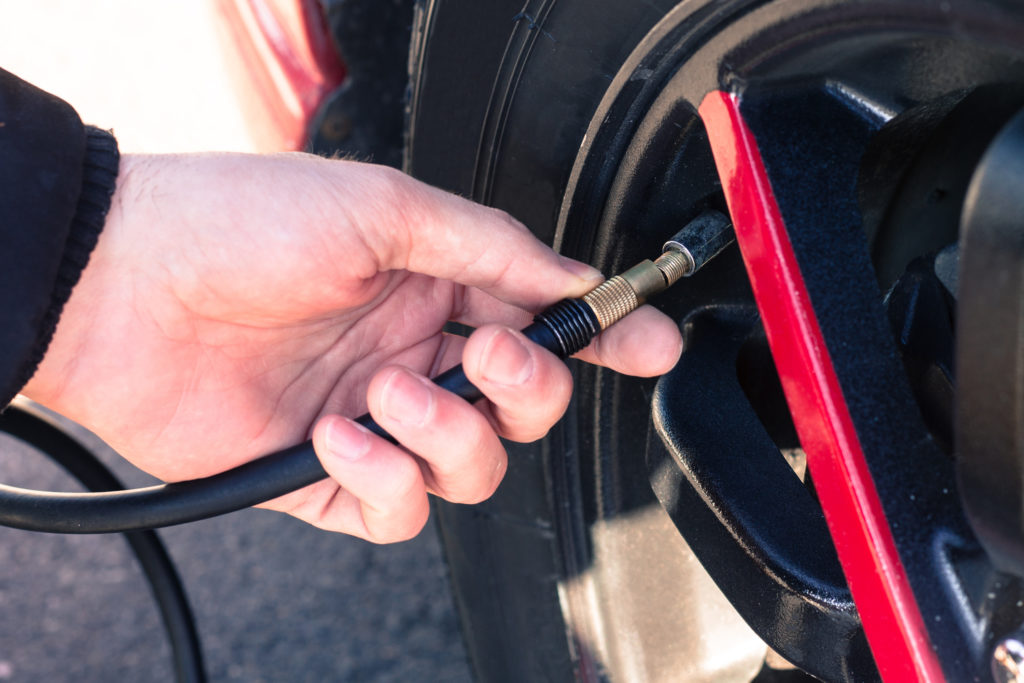
Three months ago, my favorite gas station removed its free tire air compressor. I’m still not over it.
I used to go there all the time. The gasoline is competitively priced, the convenience store offers a great selection of products, and the service is decent. They even have a loyalty card program with a seven-cent discount on each gallon of gas.
But the main reason I would visit was to fill my tires. Typically, I would pump up my tires to the recommended psi (pounds per square inch), then pull around to the gas pump and fill up my tank. Occasionally, I would stop inside the shop for a coffee or snack.
Every other gas station in town charges for air – typically a buck or two for three minutes. Not a huge amount, but it irked me to pay for something that seemingly should be free. I appreciated that this particular establishment didn’t charge. Also, the air compressor was easy to use. It had a digital screen where I could type in the exact 32 psi of air pressure needed for my model tires, and the pump would automatically fill the tire to that level, startling me with a loud beep when finished. Couldn’t be easier.
So, when they removed the free air pump and installed a pay-to-pump model, I was really upset. (Even worse, the new machine features an old-school manual pressure gauge – goodbye digital screen!) I’ve visited the station a few times since, but not as frequently as before. Now, every time I pull in, the first thing I think is, “they took away my free air!” I pump my gas, grumble to myself (or to whoever is unlucky enough to be riding with me) and leave. No more trips inside to the convenience store. More and more, I’ve avoided that station altogether, even though it’s on my way home from the office. It’s not as if any other gas station is offering better service or lower prices on gas. It’s simply that the copious stores of goodwill I had accumulated toward this business over the past decade have completely dissipated. In fact, I now have negative feelings toward this business.
NPR’s Planet Money podcast recently reran an episode from 2012 about the unique power of “free,” and how taking it away can backfire. Big time. Consider the example of veterans and the American Red Cross. Apparently, back in World War II, the Red Cross used to serve free doughnuts and coffee to American GIs stationed overseas. Then in 1943, for what seemed like very good reasons at the time, the Red Cross began charging the soldiers three cents a doughnut. Naturally, the GIs became very upset. More remarkably, veterans still have negative feelings toward the Red Cross today, more than 75 years later! The Red Cross has tried very hard over the years to make amends, to little avail.
Why is this?
It turns out that the money aspect is just one element of this phenomenon. The core reason runs much deeper. When an organization starts charging for something it used to give away for free, it drastically changes the nature of the relationship with its clients. When the Red Cross was giving away its doughnuts and coffee, the soldiers viewed the organization as a benevolent, caring entity that was looking out for their best interests during a time of great stress and hardship. The moment it asked them for money, the relationship turned transactional, and the rules of the game changed in an unexpected and irreparable way.
The bottom line? Offering something for free can be a powerful tool in marketing, and it’s a great way to entice prospects to try your product and (hopefully) become loyal customers. Many companies take this approach – from offering “freemium” content online to free banking services like coin exchange and bill pay. But you better think carefully about how long you’ll be able to keep offering that product or service gratis. Unless you believe that, like The Michael Scott Paper Company, you’ll make up for it in volume, you’ll likely have to charge eventually. And once you finally acquiesce to reality and begin charging customers for that formerly free product, the bond of trust you worked so hard to establish may be broken.
Perhaps for generations.